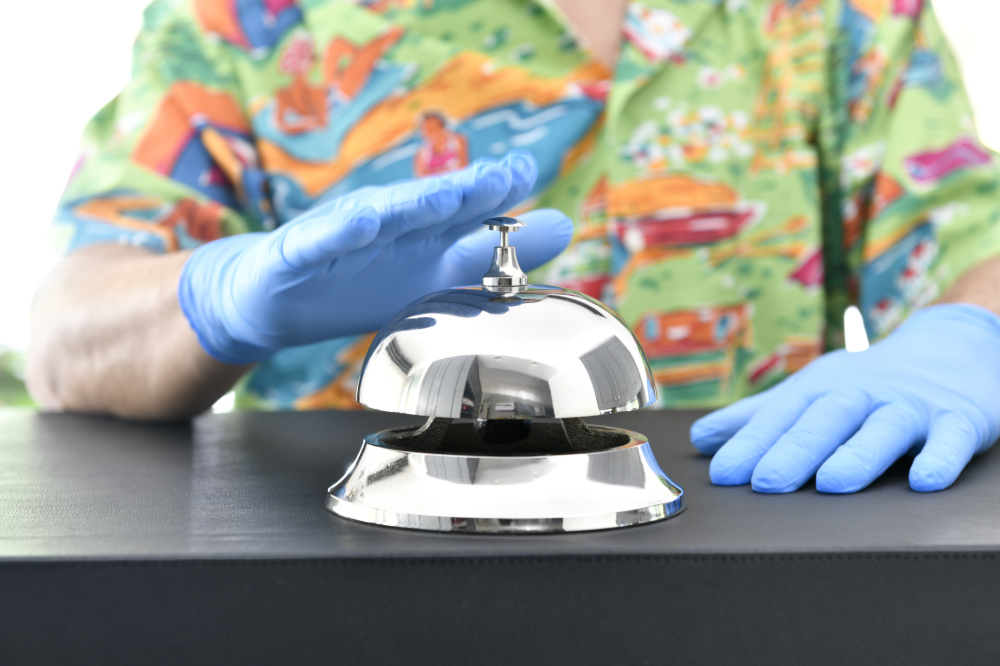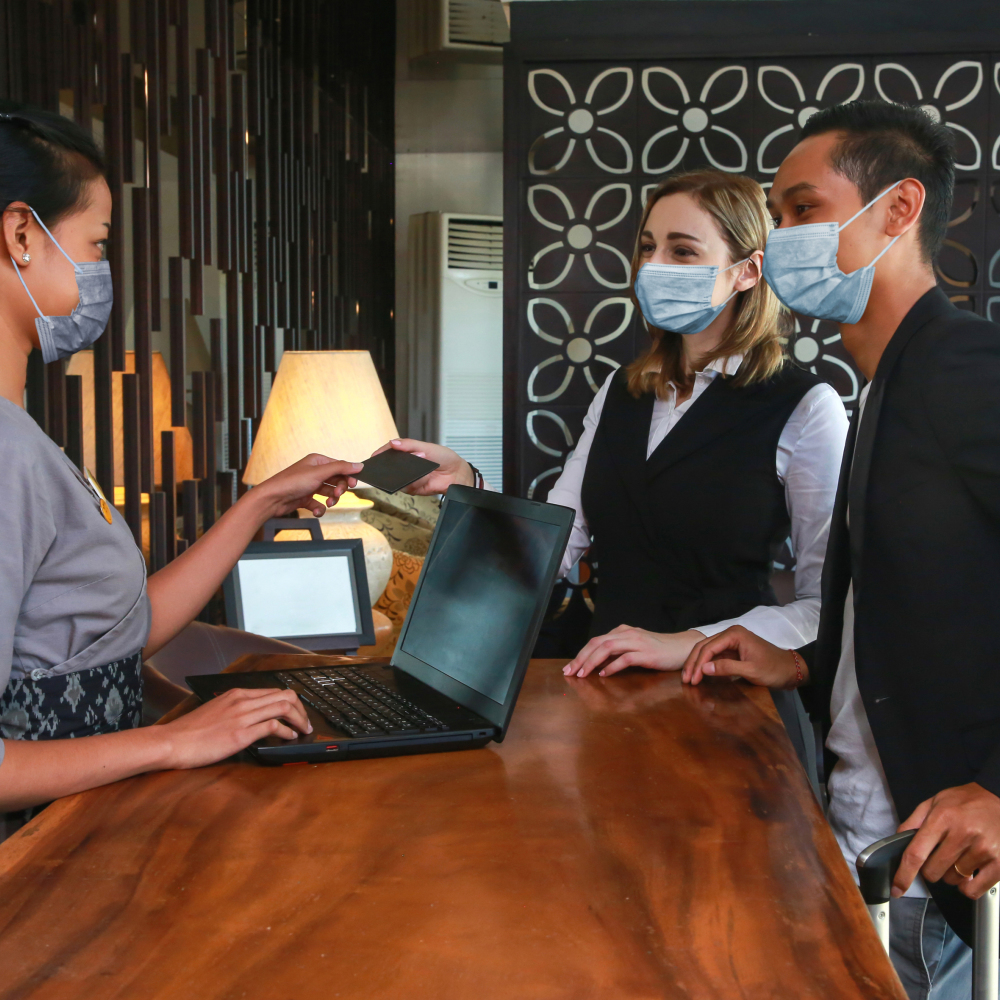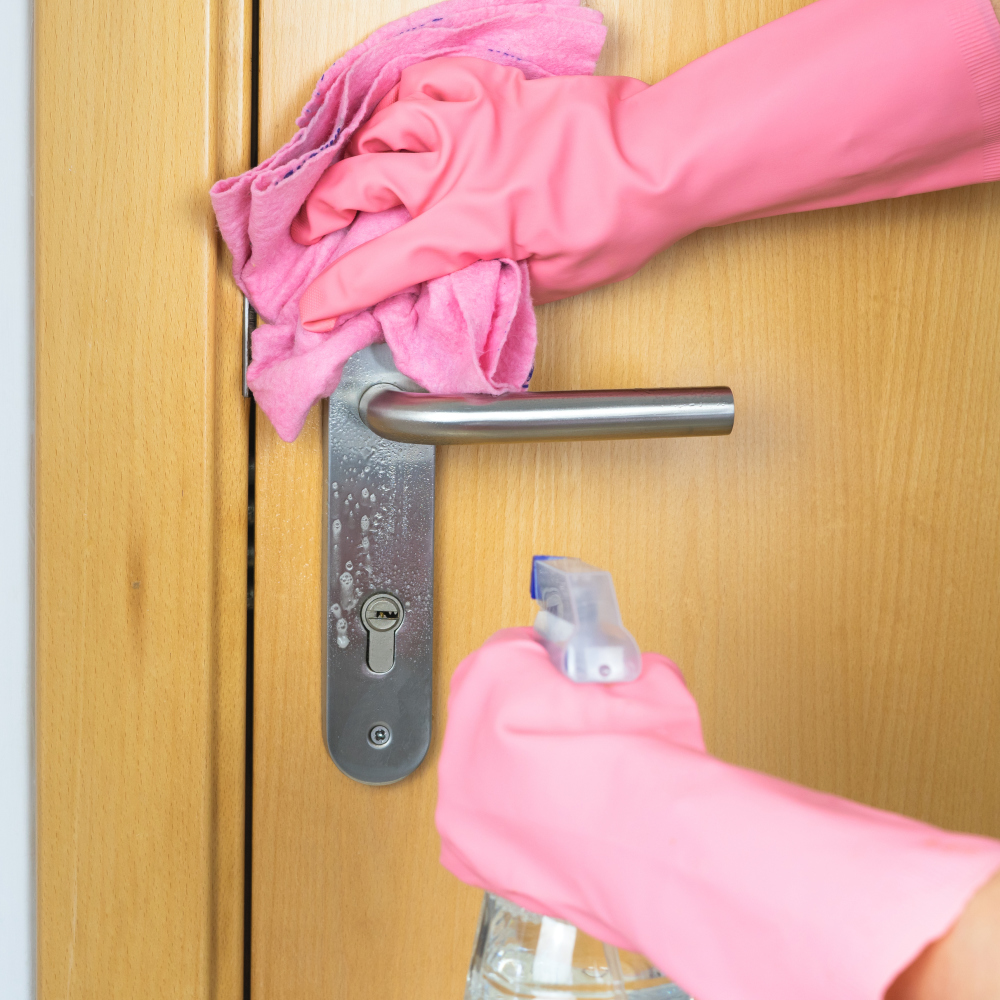Hotels and global pandemics do not go well together. The travel industry is creaking back into gear, but how do you run a hotel when simply putting a chocolate on a pillow requires a multi-stage disinfecting process?

How the world’s hotels are adapting to welcome visitors back
Here's how the world's hotels are adapting to the new normal, one disinfected door handle at a time…
A contactless welcome
There won't be many smiling faces at the check-in desk – either because they'll be hidden behind masks, or because they won't be there at all. Many hotels are already rolling out airport-style booking systems, in which customers register for their rooms online or via an app. Larger chains like Marriott and Hilton are allowing members of their loyalty schemes to skip check-in entirely and unlock their rooms with smartphones – not unlike priority boarding.
Other hotels are planning a more overtly anti-germ welcome. According to Travel Agent Central, Madrid-based chain Room Mate is installing 'diluted bleach mats' to disinfect shoes as they cross the threshold, alongside temperature checks and complimentary sanitary kits for all new arrivals.

In Portugal's Algarve, the Magnolia Hotel is going one step further, and has pledged to launder all your clothes for you on arrival, while leaving two empty rooms on either side of yours.
The classic hotel lobby is the perfect place for lingering, but some establishments are also designing one-way routes through public areas to help keep thoroughfares clear.
Extreme cleaning
For the hospitality industry hygiene is the order of the day, and housekeepers are the new frontline. Guests the world over can expect later check-ins to give staff time to deep clean – US chain Proper has pledged to leave all rooms for 24 hours between uses – while mandatory face masks are the new normal.

Others are putting their faith in technology, and Marriott is one of several companies trialling ultraviolet light and electrostatic sanitising sprayers for high-contact surfaces like door handles and elevator buttons.
Trust is everything in the post-lockdown world, and it doesn't matter how many skirting boards you disinfect if you can't convince your customers they'll be safe. Hilton has added heft to its response with their 'CleanStay' initiative, a rigorous cleaning programme devised in partnership with Lysol, Dettol, and the Mayo Clinic.
In some cases governments are stepping in to rubber stamp visitor safety. The Portuguese tourist board has debuted a 'clean and safe' label for hotels that adopt the proper protocols, while Savvas Perdios, the deputy tourism minister of Cyprus, has said the country will fully fund care and accommodation for any visitor contracting Covid-19 on its shores, according to the Guardian.
Absent amenities
A host of hotel institutions look likely to get the boot; the magazines on the coffee table, the notepad on the desk, the overpriced magnums in the minibar, are all in the category of 'not worth the risk'.
The breakfast buffet has probably served its last rasher, to be replaced by table service or room service, while difficult-to-clean creature comforts like quilts and cushions are also up for the chop. Disposable toiletries look set for a triumphant return – undoing years of progress eliminating single use plastic.
Safety in seclusion
Privacy is the new luxury, and the easiest way to inoculate yourself against your fellow guests is to remove them altogether. Some hotels are making a virtue of low occupancy by proffering entire wings or floors, with Sicily's Hotel Gutkowski advertising "clusters of rooms… up to an entire floor."
For something a little more off-the-wall, consider one of the Zero Real Estate suites in Switzerland – a set of 'hotel rooms' in the foothills of the Alps with a double bed, an exclusive butler, and no walls or ceiling. The risk from Covid is low, though rain is another matter.

